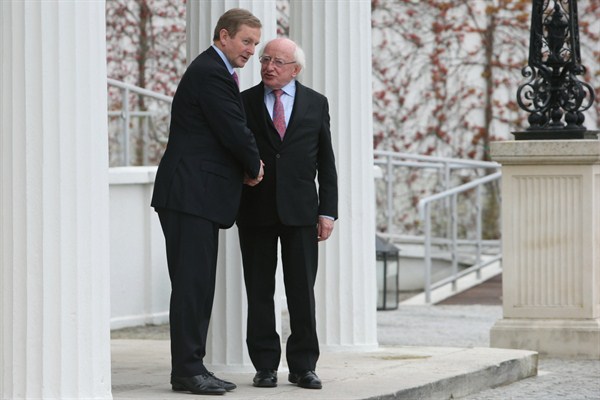The results of Ireland’s general election in late February were as indecisive as anyone could have imagined, leaving a hung parliament. After unsuccessful talks about forming a grand coalition, few are confident of the stability of the new minority government, led by Fine Gael and backed, at least for now, by its longtime rival, Fianna Fail. The breaking point will most likely come on economic policy issues.
For decades Ireland’s traditional party of government, Fianna Fail had been severely punished in the previous general election in 2011 for the economic collapse over which it presided. It made a strong recovery in February’s polls, but still came in a few seats behind Fine Gael, which has led a coalition government with the Labour Party for the past five years.
Prime Minister Enda Kenny, the leader of Fine Gael, had his eyes on the history books this time around. There was the tantalizing possibility of being the first Fine Gael leader to head up two governments in a row. But the results of the election left only two routes open to him: form a coalition with Fianna Fail, which would have given him a large majority in parliament; or convince Fianna Fail to retire to the sidelines while he formed a minority government with the disparate groups of independents and small parties that had been returned to parliament in record numbers.

